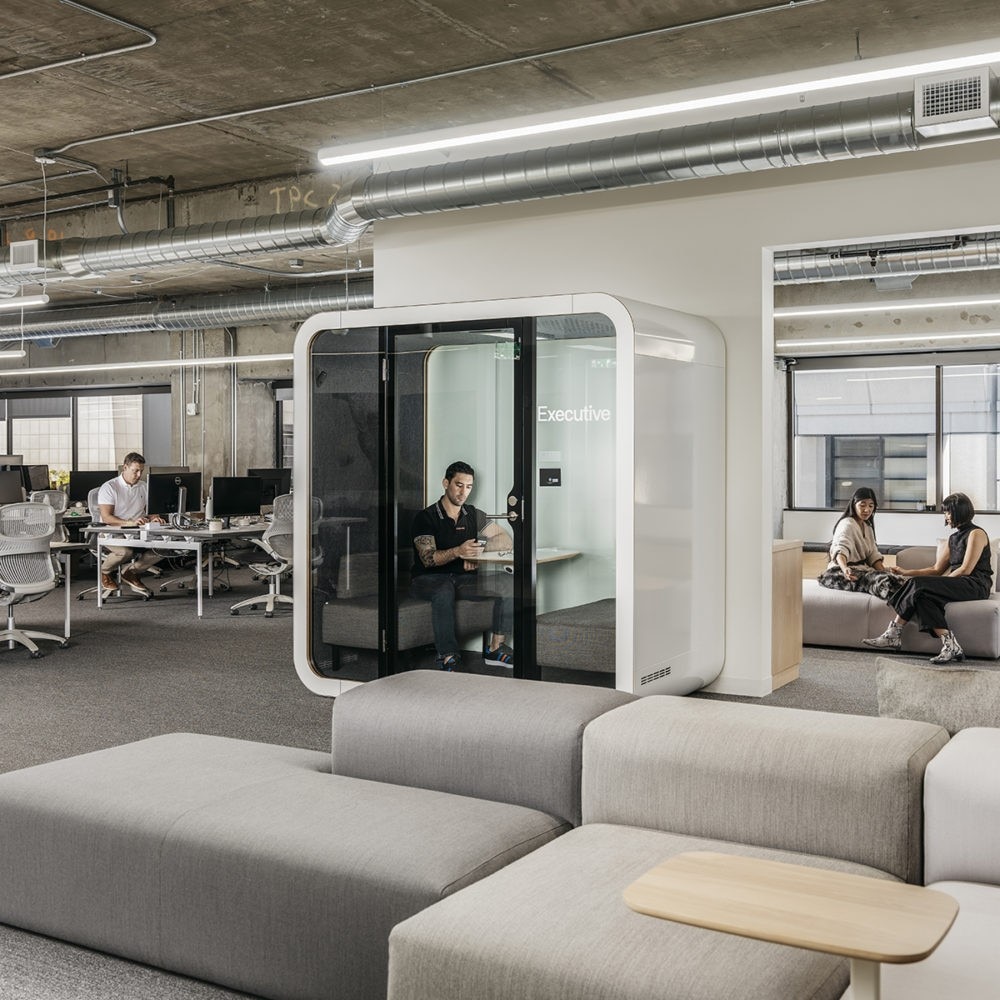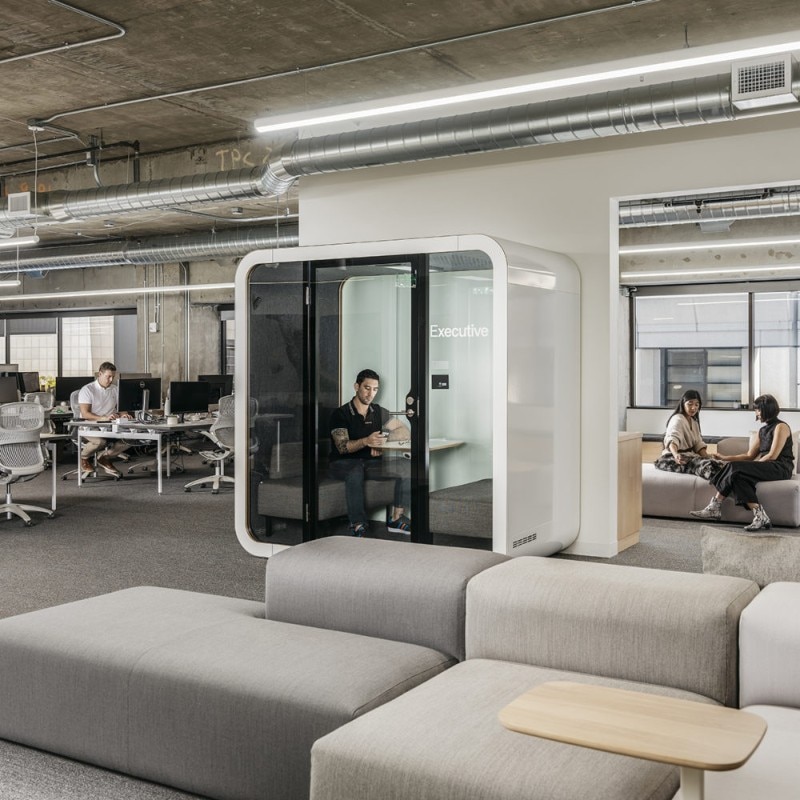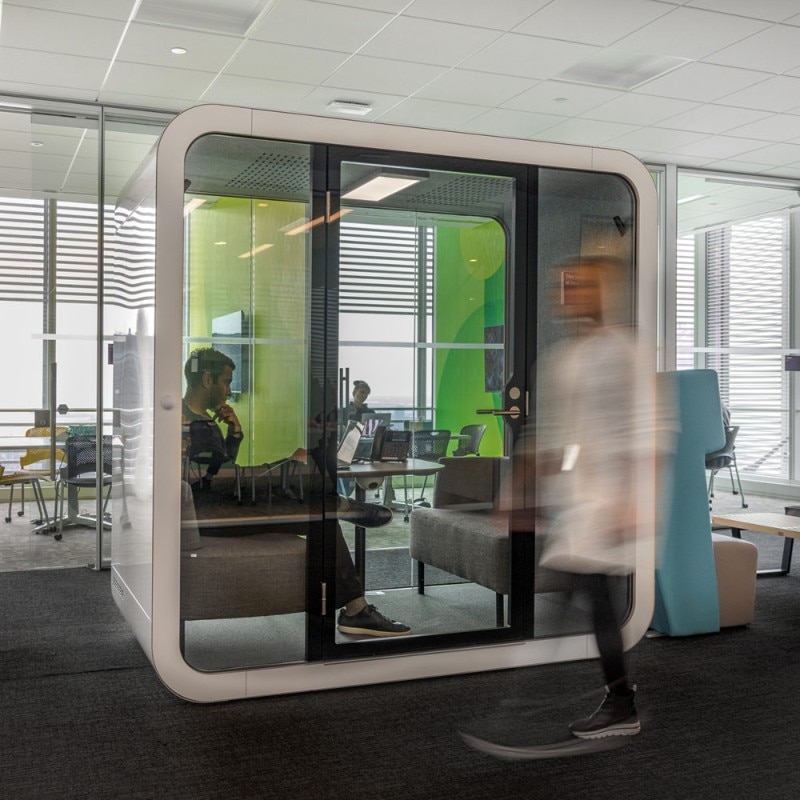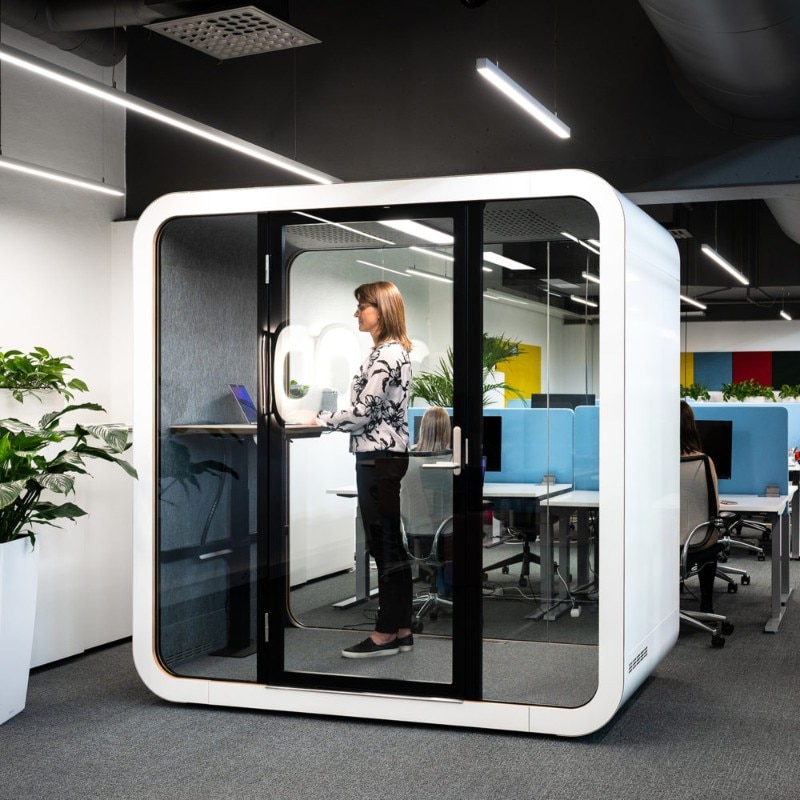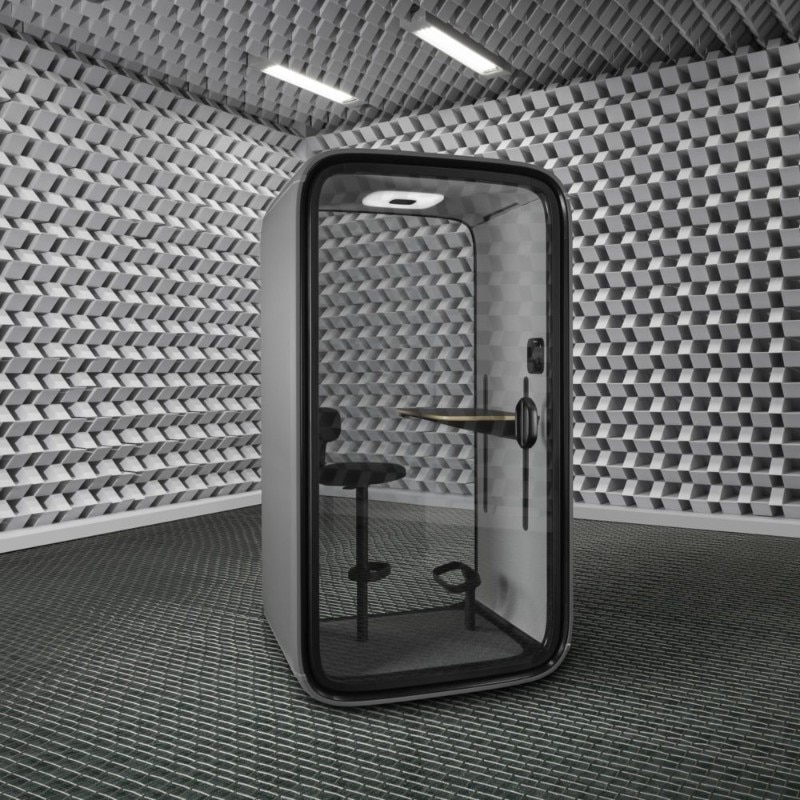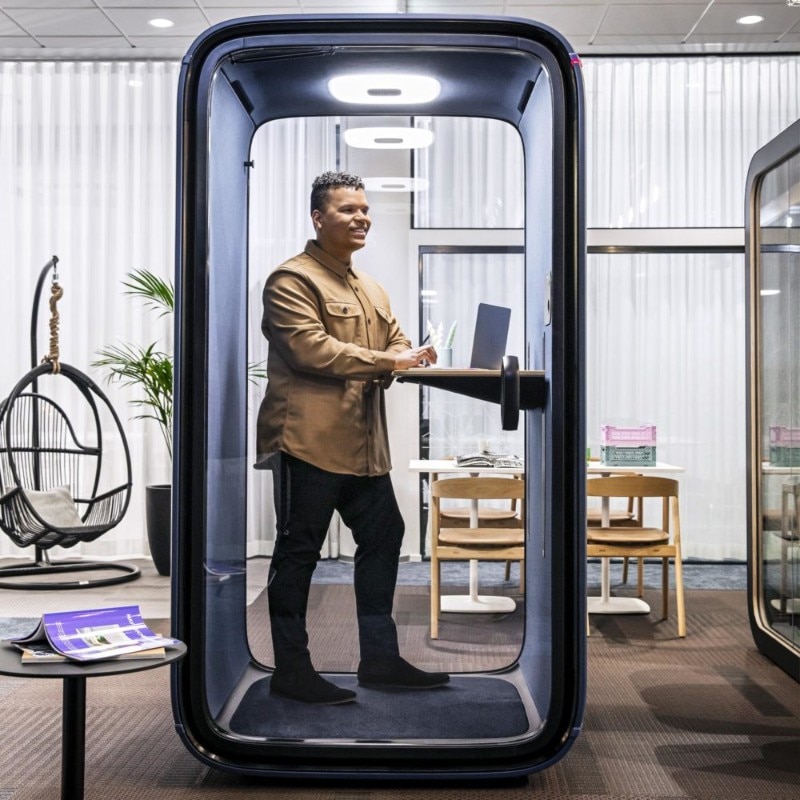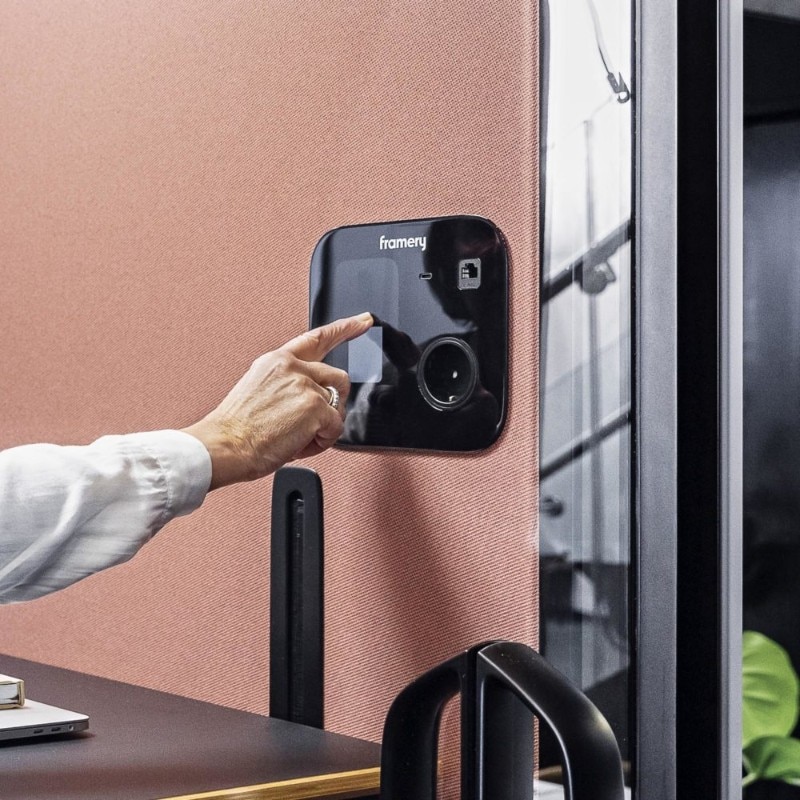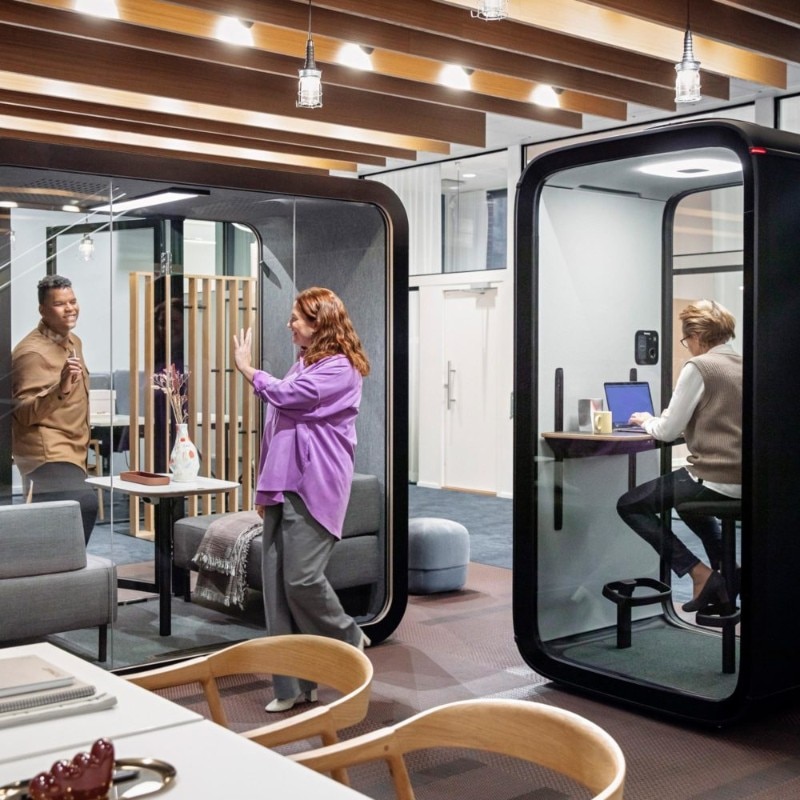Open Spaces must be the most mismatched concept in office architecture. Loved by most companies, especially startups, as an efficient way to optimize space and costs, they are also widely hated by employees. A survey conducted by Clutch shortly before the pandemic showed that only 28% of American employees enjoy working in an open office setup.
To try and put a patch on such a disliked but very cost-effective allocation of space, office architects and interior designers started coming up with solutions to add private spaces to the company floor layouts. The "soundproof pod" was one of them. Once you've seen one, you've seen them all: styled to look futuristic, warm, and welcoming, they're upright coffins where the employee can retreat to escape the open space sound pollution, either to make calls without disturbing others or to try and actually concentrate on work for a brief time.
The idea was to provide a safe and quiet space to the programmer, the designer, the creative worker, the writer, and in general, those whose output depends on a peaceful flow state. Now that these people have discovered working from home, there's no going back. At home, they can set their own schedule. They can make a boring meeting less dreadful by turning off the camera on zoom while doing laundry. They can have their quiet, silence all notifications, and be productive.
Incidentally, that's what a soundproof pod was meant to recreate at the office. If letting your developers work from home most of the time during the week achieves the same result as a soundproof pod, why should a company buy one anymore? Take the copy from one of the most high-end soundproof pods on the market, the Framery One: “You can look forward to a highly adaptable workspace where you won't be disturbed by outside noise or distractions and can enjoy best-in-class design while you focus on your next project”.
Two years ago, these lines would sound enticing to a society that didn't know people could be even more productive in a remote office setting. Now they sound like a parody or the description of what can be achieved every day, with little to no extra cost, by simply letting your employees create their own quiet space at home.
At the same time, those who don't thrive on working alone at home are those employees who like to go to the office to meet people, leverage in-person collaboration, and enjoy the natural entropy of the office space. In other words, the reshuffling of office workers' needs has likely eroded most of the reasons for a product like Framery's pods and many of their competitors. Thanks to their know-how, though, Framery and other companies are perfectly positioned to help big companies revise the concept of open space, turning their smart pods into private prefab offices, for example, that would be easy to implement in an existing open space.


